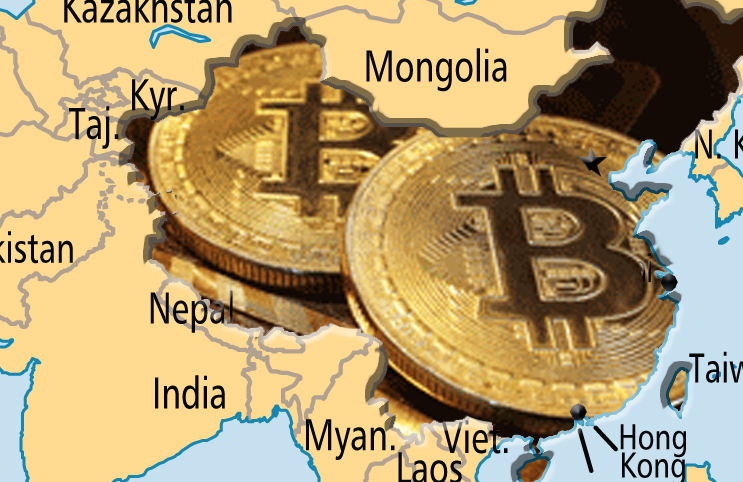cryptocurrency meaning
Cryptocurrency meaning
The rise in the popularity of cryptocurrencies and their adoption by financial institutions has led some governments to assess whether regulation is needed to protect users. Types of news sites The Financial Action Task Force (FATF) has defined cryptocurrency-related services as “virtual asset service providers” (VASPs) and recommended that they be regulated with the same money laundering (AML) and know your customer (KYC) requirements as financial institutions.
The term “physical bitcoin” is used in the finance industry when investment funds that hold crypto purchased from crypto exchanges put their crypto holdings in a specialised bank called a “custodian”.
As the popularity and demand for online currencies has increased since the inception of bitcoin in 2009, so have concerns that such an unregulated person to person global economy that cryptocurrencies offer may become a threat to society. Concerns abound that altcoins may become tools for anonymous web criminals.
Proof-of-work cryptocurrencies, such as bitcoin, offer block rewards incentives for miners. There has been an implicit belief that whether miners are paid by block rewards or transaction fees does not affect the security of the blockchain, but a study suggests that this may not be the case under certain circumstances.
In June 2020, FATF updated its guidance to include the “Travel Rule” for cryptocurrencies, a measure which mandates that VASPs obtain, hold, and exchange information about the originators and beneficiaries of virtual asset transfers. Subsequent standardized protocol specifications recommended using JSON for relaying data between VASPs and identity services. As of December 2020, the IVMS 101 data model has yet to be finalized and ratified by the three global standard setting bodies that created it.
Cryptocurrency news today
Smaller coins saw bigger moves as investors continued to digest the implications of a second term for President-elect Donald Trump. The payments coin XRP surged 11%. The decentralized finance token tied to Cardano rocketed 40%. Memecoins dogecoin and Shiba Inu coin soared 17% and 31%, respectively.
Ether and other cryptocurrencies, however, stand to gain much more from the crypto-friendly regulatory environment that Trump has promised and appears to be a priority for many in his inner circle. For example, one reason the spot bitcoin ETFs didn’t see as much success as bitcoin ETFs is because they don’t distribute staking rewards. Many in the industry are hopeful that will change next year.
![]()
Smaller coins saw bigger moves as investors continued to digest the implications of a second term for President-elect Donald Trump. The payments coin XRP surged 11%. The decentralized finance token tied to Cardano rocketed 40%. Memecoins dogecoin and Shiba Inu coin soared 17% and 31%, respectively.
Ether and other cryptocurrencies, however, stand to gain much more from the crypto-friendly regulatory environment that Trump has promised and appears to be a priority for many in his inner circle. For example, one reason the spot bitcoin ETFs didn’t see as much success as bitcoin ETFs is because they don’t distribute staking rewards. Many in the industry are hopeful that will change next year.
With PayPal’s recent stablecoin announcement, scammers are attempting to capitalize on the hype by releasing counterfeit PYUSD tokens on various blockchains. This serves as a cautionary tale for investors to exercise due diligence and verify the authenticity of tokens before making any transactions.
In the ever-evolving world of cryptocurrencies, today brought a mix of intriguing developments that are sure to capture the attention of both crypto enthusiasts and traditional finance professionals. From Bitcoin’s resurgence on the back of weak Chinese economic data to the buzz around PayPal’s stablecoin, here’s a comprehensive roundup of the day’s most significant crypto news.
China cryptocurrency
China places an annual limit of $50,000 for the purchase of foreign currencies as part of its already strict capital controls. As such, the capital flight facilitated by cryptocurrency is especially notable.
The FCA and Bank of England have also proposed regulations for stablecoins. Stablecoins are designed to be more stable in value than cryptocurrency by having their value tied to that of another asset. You can find out more about the differences between cryptocurrencies and stablecoins in our explainer.
That Executive Order commits the White House to taking part in research on cryptocurrencies and to engaging departments across the government to collaborate in the creation of a regulatory framework for digital assets. It also outlines a “whole-of-government approach to addressing the risks and harnessing the potential benefits of digital assets and their underlying technology.”

China places an annual limit of $50,000 for the purchase of foreign currencies as part of its already strict capital controls. As such, the capital flight facilitated by cryptocurrency is especially notable.
The FCA and Bank of England have also proposed regulations for stablecoins. Stablecoins are designed to be more stable in value than cryptocurrency by having their value tied to that of another asset. You can find out more about the differences between cryptocurrencies and stablecoins in our explainer.
That Executive Order commits the White House to taking part in research on cryptocurrencies and to engaging departments across the government to collaborate in the creation of a regulatory framework for digital assets. It also outlines a “whole-of-government approach to addressing the risks and harnessing the potential benefits of digital assets and their underlying technology.”